Anxious thoughts can run circles in your head
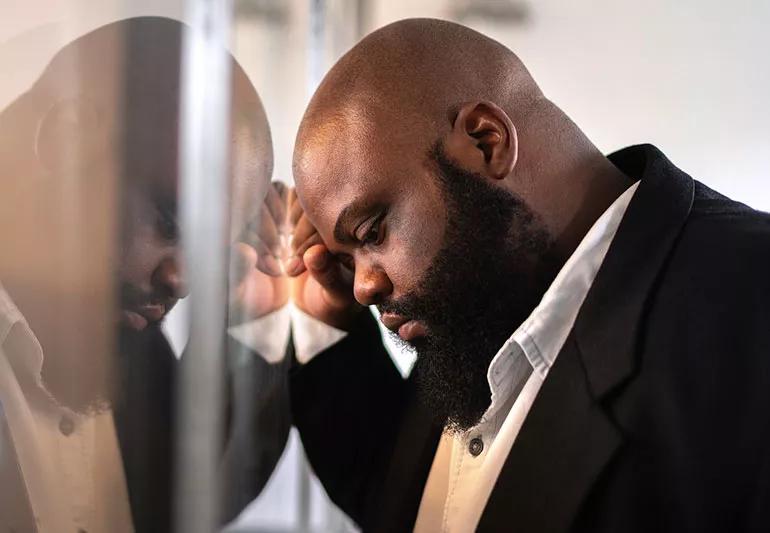
You have deadline pressures at work. Your relationship is getting complicated. Or your kid is having problems at school. Maybe you even have a health concern nagging at you. Suddenly, anxiety has taken over your life. “Anxious thoughts activate the limbic system — the fear center in our brain. Just a simple thought can easily trigger this part of the brain in a split second,” says psychologist Susan Albers, PsyD. “I think of anxiety to be like walking around with an umbrella waiting for it to thunderstorm.”
Advertisement
Cleveland Clinic is a non-profit academic medical center. Advertising on our site helps support our mission. We do not endorse non-Cleveland Clinic products or services. Policy
Anxious thoughts chase each other like a dog chasing its tail.
“Imagine a woman who has a headache, and the very next thought that jumps into her mind is, ‘Oh no, maybe it’s a brain tumor,’” says Dr. Albers. “That creates anxious energy. She tells her husband about the headache, who says, ‘This is the first headache you’ve had in years. It’s probably just a headache.’
“That feels good for about 20 seconds because it’s true. But then she thinks, ‘This is unusual, I’ve had this headache for 30 minutes. He wasn’t really listening to me.’ Next thing you know, she’s online, checking out symptoms for brain tumors. She doesn’t meet any of the criteria until she sees ‘headache’ on the list and thinks, ‘That’s no good!’” Now she’s back to square one.
This is one small example of how trying to quell anxiety with reassuring thoughts, or to “fix” anxious thoughts with other thoughts, just doesn’t work. It’s also exhausting.
“Reassuring thoughts are like a short-acting drug; they wear off quickly,” says Dr. Albers. “Then, the irrational thoughts come flooding back in.”
So what can you do if you’re feeling anxious? Start by facing your anxiety, advises Dr. Albers. Then, there are a few strategies you can take to calm that anxious feeling to a more manageable level.
Advertisement
Put out the flames of anxiety with some cool breaths. Breathe in and out, deeply and slowly. “When you slow down your breathing, you trick your body into thinking you’re relaxing or going to sleep,” says Dr. Albers.
“Thoughts like, ‘I can’t stand this; this is awful!’ fuel the fire of anxiety,” says Dr. Albers. Instead, think about what you can and cannot change about the situation. Then take steps to change what you can, and work on accepting what you can’t.
Anxiety can stem from needless worry about a lot of things that aren’t important in the long run. “Consider how this will really impact you in five minutes, five months or five years,” advises Dr. Albers.
Try some yoga stretches, or take a tennis ball and rub it under your foot or behind your back. “Find gentle ways to calm your body,” suggests Dr. Albers.
Research proves that simply naming your feelings can help calm you down. “This is easier to do when you share your feelings with others,” she notes.
Anxiety is like a red flag, telling you that something needs attention. “Don’t ignore this sign — contact a professional to help you through it,” says Dr. Albers.
Sometimes, medical issues can mask themselves as anxiety or mimic its symptoms. “Don’t forget to get your checkup each year,” she says.
“Sometimes, you just have to let anxiety come and go, like riding a wave,” says Dr. Albers. Remember that it’ll fade and that “This, too, shall pass.”
Stay in the moment instead of jumping ahead. To bring yourself back to the present, try this 5 senses exercise. Hold your fist out, and extend one finger at a time as you name: 1 thing you can taste; 2 things you can smell; 3 things you can touch right now (like your skin against the chair, a soft sweater); 4 things you can hear; and 5 things you can see in the immediate environment.
“Focusing on a sensory experience, moves you out of your head, away from your thoughts and directly into your body,” explains Dr. Albers.
Avoid soothing your anxiety with things that can lead to more anxiety, advises Dr. Albers.
“For example, stress eating is like putting a Band-aid® on a gaping wound,” she says. “You want to deal with your anxiety directly.”
Dredging up bad experiences from the past or imagining scary scenarios in the future will just heighten your anxiety, too. When this happens, realize what you’re doing.
“Remind yourself that you encounter stressful things every single day, and you find ways to handle them. Bad things happen relatively sparingly and our brains are well-equipped to handle a crisis if one occurs,” says Dr. Albers. “Be engaged in your real life, not in imagined moments, and don’t create ‘what-ifs.’”
Advertisement
The best way to begin is to work on developing a new relationship with your thoughts.
“Thoughts are like clouds. They’re not good or bad, they just come and go,” she says. “You don’t have to react to them — ‘Oh, wow, that’s interesting. I wonder where that thought came from,’ works better than ‘Oh, no, that’s terrible.’ Being grounded in the present moment, without judgment, is the place to be.”
Advertisement
Learn more about our editorial process.
Advertisement
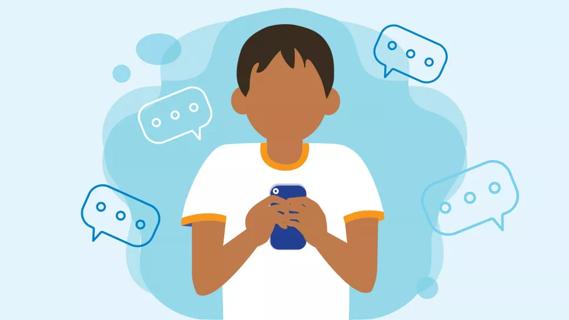
Too much screen time and unrealistic expectations and perceptions and can lead to an increased risk of anxiety and depression
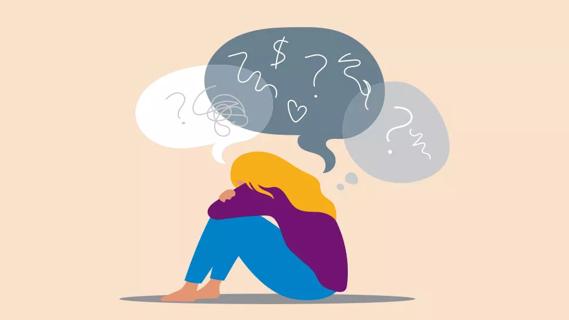
Although different conditons, they can occur together or cause one another
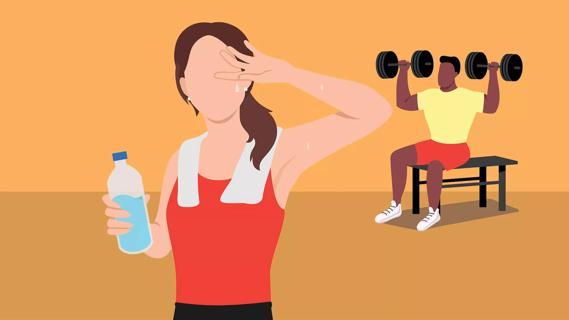
If the thought of the gym sends you spiraling, do some prep work beforehand and bring a friend along for support

Stay merry and bright by knowing your triggers and journaling throughout your visit
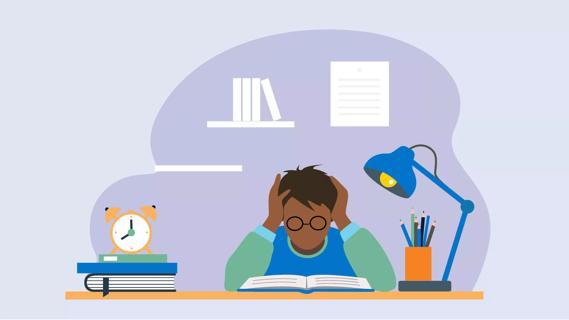
Focus on a positive mindset, strong study habits and healthy living
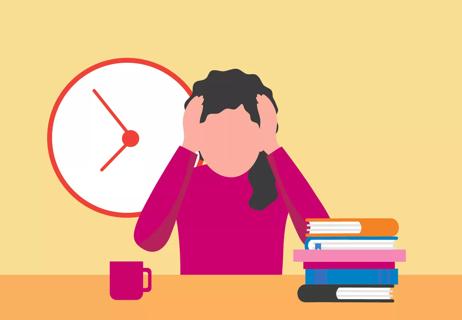
Breathwork, sleep meditation and avoiding screens can help fight back morning anxiety

This supplement may help with regulating cortisol levels, which may help with stress
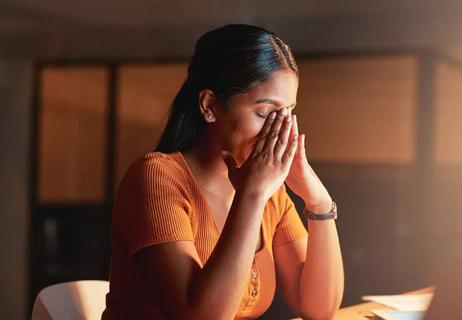
Physical, mental and emotional responses are all relevant symptoms

Type 2 diabetes isn’t inevitable with these dietary changes

Applying a hot or cold compress can help with pain